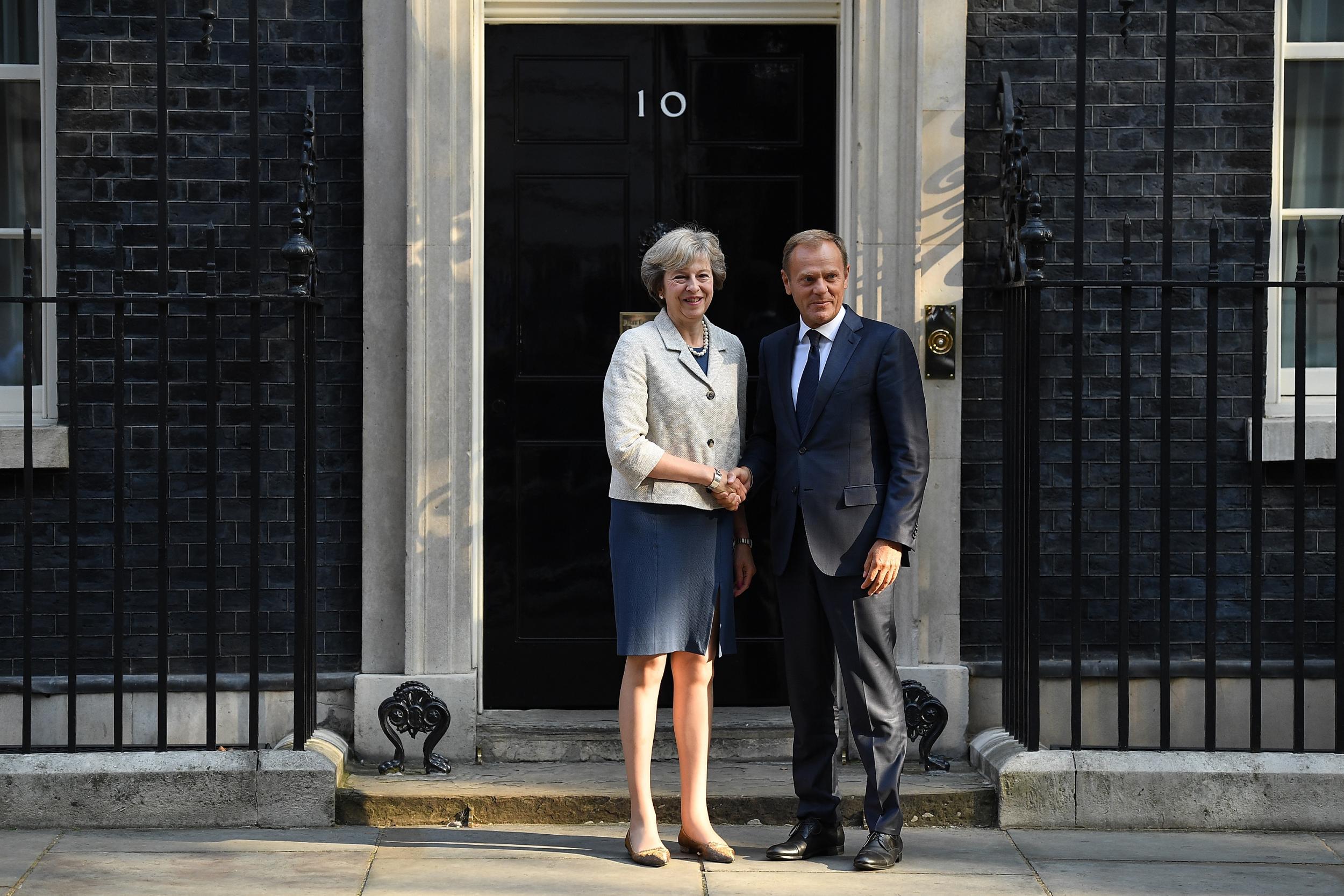I’m known as the Brexit expert who said it would never actually happen – after Article 50, my opinion hasn’t changed
If what you mean by ‘Brexit’ is the UK severing all ties to the EU to reclaim our sovereignty and take back control of our borders, then it isn’t likely at all


Your support helps us to tell the story
From reproductive rights to climate change to Big Tech, The Independent is on the ground when the story is developing. Whether it's investigating the financials of Elon Musk's pro-Trump PAC or producing our latest documentary, 'The A Word', which shines a light on the American women fighting for reproductive rights, we know how important it is to parse out the facts from the messaging.
At such a critical moment in US history, we need reporters on the ground. Your donation allows us to keep sending journalists to speak to both sides of the story.
The Independent is trusted by Americans across the entire political spectrum. And unlike many other quality news outlets, we choose not to lock Americans out of our reporting and analysis with paywalls. We believe quality journalism should be available to everyone, paid for by those who can afford it.
Your support makes all the difference.Last year’s EU referendum result was a big surprise followed by bigger questions about when Brexit would start and what it might look like. A few months later, after being quoted in The Independent, I became known worldwide as the “expert” who claimed “Britain will never leave the EU”.
Now that Theresa May has triggered Article 50 and negotiations to start shortly, I’ve been asked many times whether I’ve changed my mind. Isn’t it time that Remain supporters stopped being Remoaners?
The short answer is no, although it mostly depends on what you mean by “Brexit”. If Brexit is about the UK severing all ties to the EU to reclaim our sovereignty and take back control of our borders, then this isn’t likely.
The problem is that often when people talk about leaving “the EU” they confuse it with leaving the EEA (European Economic Area) and its single market – but not all EEA states are in the EU. It may be possible for the UK to leave the EU but remain in the EEA and follow the Norway model, an option many people think is preferable.
This EU versus EEA distinction is important in principle because leaving the EU doesn’t mean ending free movement, as this is connected to EEA membership, but voters were only asked about the EU in last year’s referendum.
In practice though, it doesn’t matter too much. The Prime Minister has said free movement for Europeans will continue for years post-Brexit as part of an extended “transition”, and how long this will last is anyone’s guess.
Likewise, there will be no substantive change in most other areas either. The misnamed “Great Repeal Bill” is neither great nor a repeal – it will only keep existing EU laws in a holding pattern until the UK decides what to do with them. All 83,000 or more.
It will be an enormous task for the Government to wade through them in their many thousands deciding which to keep, amend or scrap. And that’s without contemplating the poor parliamentary aides having to produce risk assessments for possible consequences for each decision. Taking back control never looked so time-consuming. It’s difficult to see future governments spending much time on anything more than what Britain should keep or kick out on Brexit Day – while EU states focus on moving forward.
What we know now is that we won’t have a clear break with any of it. The Prime Minister has even voiced her interest in Britain remaining a part of shared counter-terrorism and security arrangements. Brexit will not mean Britain cuts the cord with Europe to go it alone. Instead, we’ll be keeping what we like and revising what we don’t – or at least we’ll try.
May has triggered Brexit, but Britain hasn’t left the EU yet. I still strongly doubt a full break is on the cards, however unpopular such an outcome might be for Brexit supporters.
I accept the country voted to leave the EU. I even criticised the Government for its original referendum question being biased in favour of Remain demanding a change – which the Electoral Commission agreed and government accepted. So this isn’t a case of sour grapes.
But I’m also not the one who made promises that can’t or won’t be kept. The Government has much to answer for. The sooner it acknowledges the realities, the better.
Thom Brooks is Professor of Law and Government at Durham University
Join our commenting forum
Join thought-provoking conversations, follow other Independent readers and see their replies
Comments